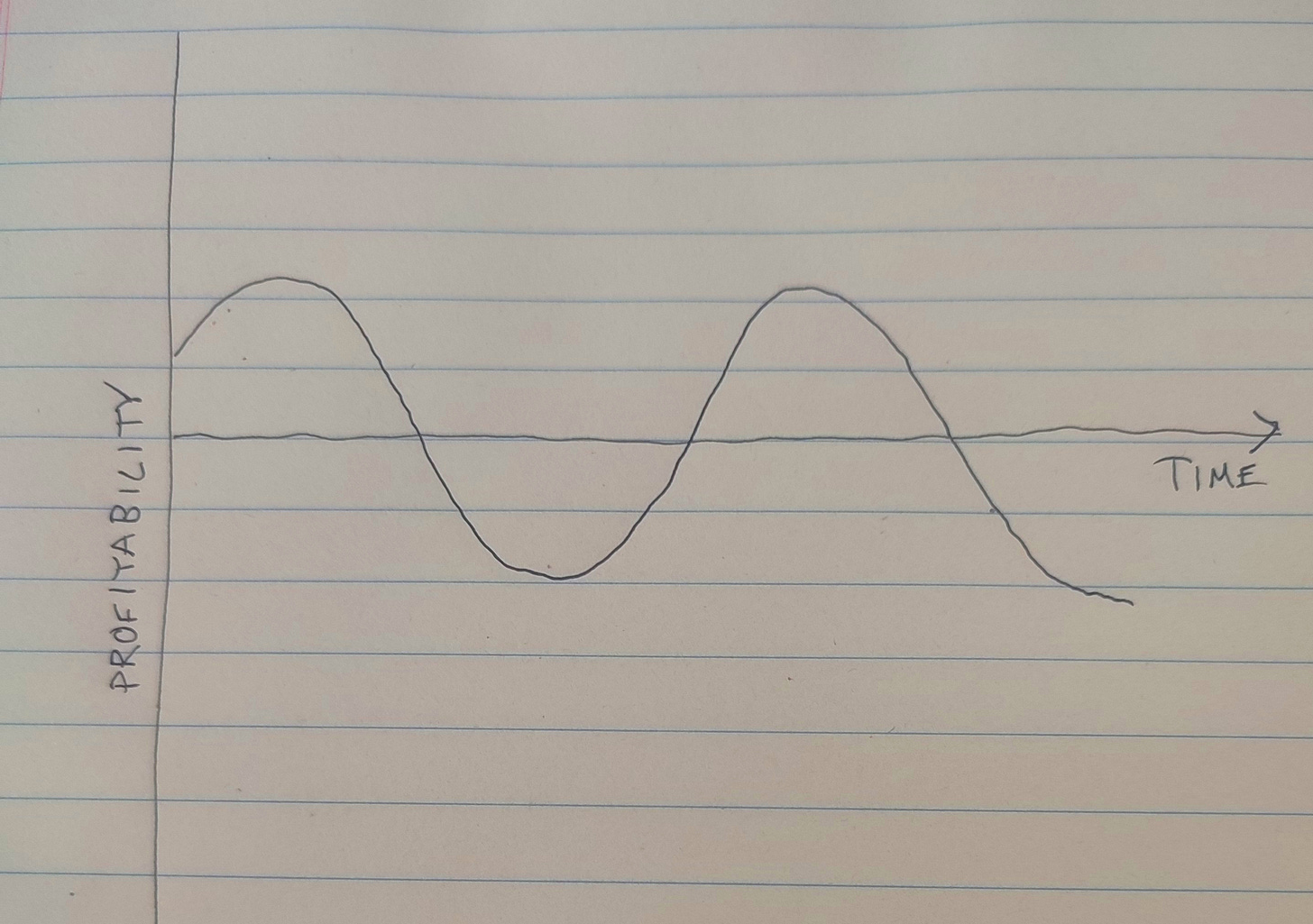the cursed credibility curve
an example of feedback with a lag
a somewhat shorter and lighter post for Friday I think … I always used to draw this curve when I was a stock analyst, to explain one of the more frustrating aspects of that profession; the seemingly perverse and capricious choices made by the sales desk as to which ideas they would push to the client base. I didn’t know at the time that I was illustrating a known problem of control theory, which also fascinated Norbert Wiener.
Basically, as everyone involved in the stock-picking industry knows, you have hot and cold streaks. Sometimes you’re really in tune with the market, sometimes you’re not. And good ideas don’t last - the way they demonstrate their goodness is by going up and consequently having no more upside in them. So, over time the profitability of your ideas fluctuates:
Your colleagues on the sales desk want to get behind good ideas, but the only way a good idea can be identified is ex post, by which time it isn’t good any more. So they pay attention to the analysts who have recently had hits, on the basis that good ideas come from good analysts:
As you can see, the lag in performance measurement accounts for the fact that your very best ideas will languish, then the whole sales desk will really get together and market you just when you’re about to fall on your face.
I discussed this once with a more than usually intelligent sales guy, who thought about it and responded that a similar phenomenon probably accounts for the fact that the last series of most TV shows invariably sucks.



"more than usually intelligent sales guy" - the fact that some of the bozos I've worked with (fellow ex-equity researcher here) got very very wealthy doing equity sales never fails to astonish/dismay
The same phenomenon occurs with managers in the Premier League. Getting the Manager of the Month award is seen as a curse for many teams because they soon regress to the mean.